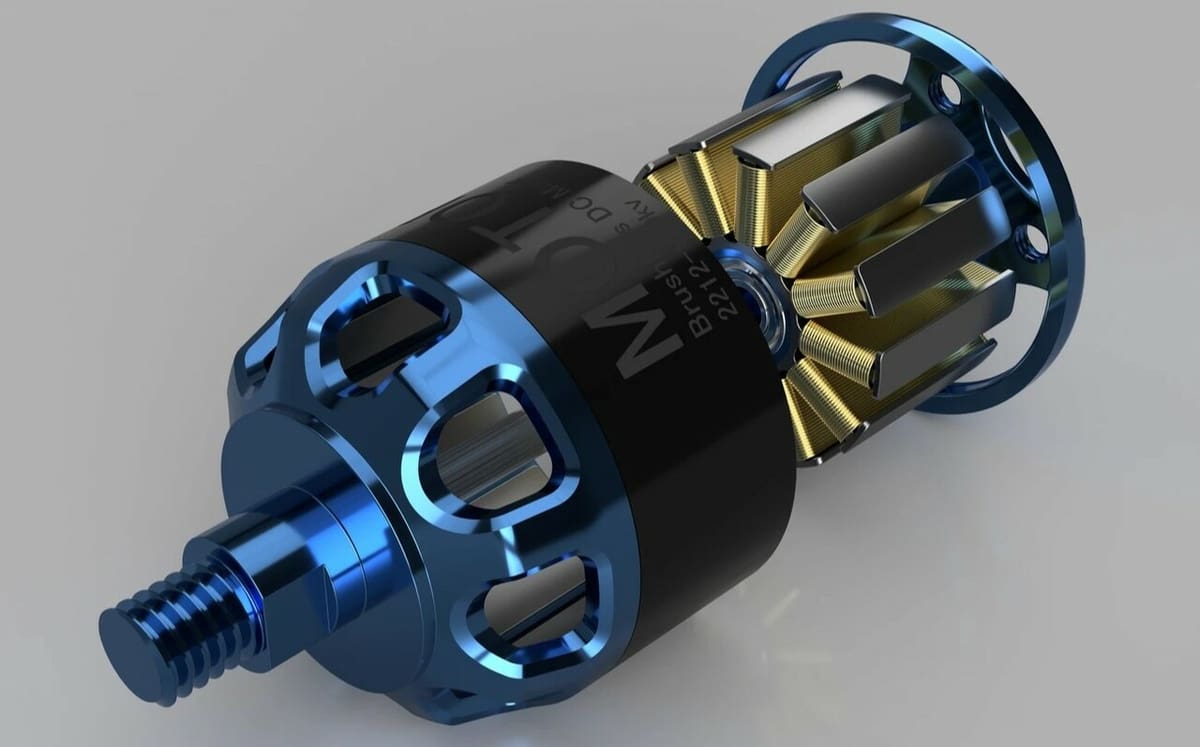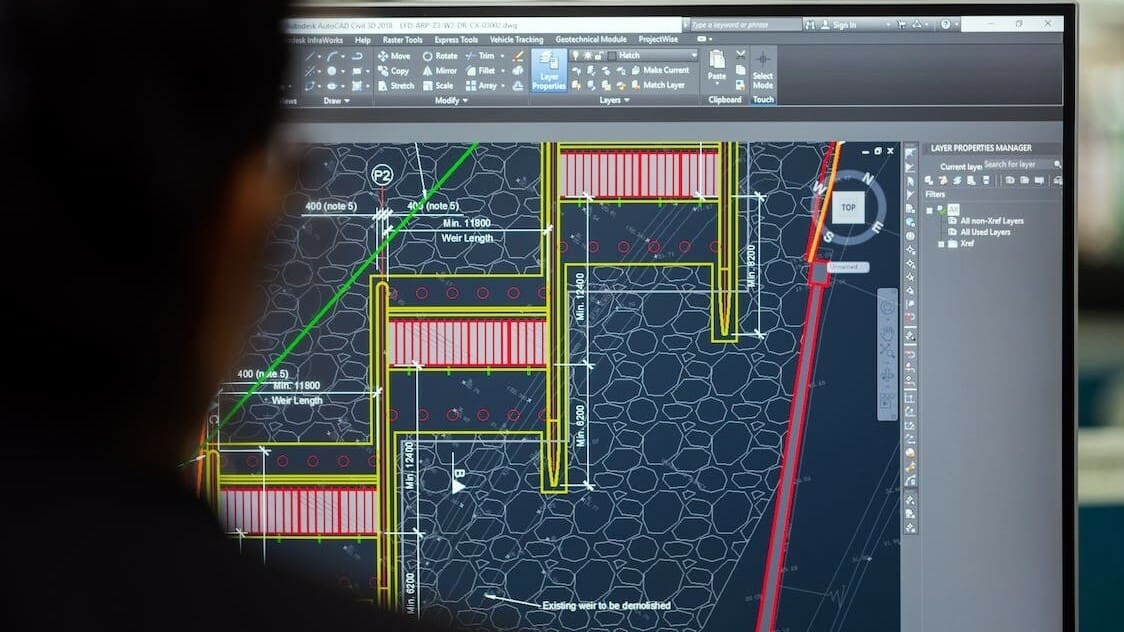Headquartered in San Francisco and boasting over four decades of experience, Autodesk is a leading software company in many industries. Its diverse product portfolio, including AutoCAD, Revit, and Fusion 360, spans architecture, engineering, construction, product design, manufacturing, and media.
Autodesk’s software solutions are industry-leading and often considered essential for various professional roles. Demonstrating proficiency in these tools can significantly elevate one’s career and improve the chances of landing that dream role. Autodesk offers a range of certifications across its software suite and different proficiency levels.
Whether you’re an actively engaged student or a seasoned professional, obtaining Autodesk certifications can markedly improve your career prospects and earning potential. This article will delve into the available certification types and associated costs, plus give you a few tips to prepare for the exam!
Understanding the Certification Levels

The certifications from Autodesk are comprehensive, encompassing a wide array of software applications and professional fields, so you need to assess both your current skill level and future career objectives. Certifications are structured into four distinct levels: Autodesk Certified User (ACU), Autodesk Certified Associate (ACA), Autodesk Certified Professional (ACP), and Autodesk Certified Expert (ACE).
Broadly speaking, the Certified User is the most foundational (and accessible) one. It’s the only exam conducted exclusively online and the only one where you’ll need to use the software during the examination.
The other three levels are industry-specific certifications facilitated by Pearson VUE. It can be taken online or in person at a local test center (located globally). During the examination for ACA, ACP, and ACE, there is no access to the software to ensure that candidates rely solely on their expertise. Note that to test online, you must adhere to the guidelines regarding system requirements, a private workspace, and continuous video monitoring during examination.
The ACA, ACP, and ACE examinations are all taken without the aid of the software of focus. Autodesk outlined the type of exam questions to expect:
- Multiple-choice questions assessing knowledge of a specific topic
- Drag-and-drop questions assessing object association and placement skills
- Active-screen questions evaluating familiarity with the software UI
- Hot-area questions, which are essentially multiple-choice items with graphical answer choices
- Graphic-interpretation questions where test-takers interpret information presented in graphic form
Now, let’s take a closer look at each certification level to help you determine which best fits your needs.
Autodesk Certified User

The Autodesk Certified User (ACU) certification serves as the most foundational credential within the Autodesk certification spectrum. Geared toward secondary students, interns, and entry-level users in diverse industries, it’s most appropriate for users with approximately 150 hours of hands-on experience.
It’s important to note that the certification process, unlike the other certifications, is exclusive to Certiport in the United States, but individuals outside the country can access exams through one of the global solution providers. Many of the exams are available in multiple languages.
With a starting price of ~$90, the ACU certification is a cost-effective entry point for aspiring professionals and students seeking validation of their Autodesk software skills. On the Certiport site, you can download the exam objectives for the software of focus.
Certifications are available for the following Autodesk software:
Autodesk Certified Associate

The Autodesk Certified Associate (ACA) level is tailored for higher education students and individuals with a solid foundation for working independently in Autodesk software and who want to enter the job market. This certificate requires advanced skills and problem-solving abilities that go beyond basic modeling.
This certification is appropriate for users with at least 150 hours of practical experience with Autodesk Fusion 360. It can be considered an entry-level certification for three different CAD or CAM disciplines. Given Fusion 360 is available for free for hobbyists, this certification is a great choice for those looking to transfer their self-taught skills into a career.
The examination costs ~$150 and is comprised of 44 to 55 questions that must be completed within a 90-minute timeframe. Certification is valid for 2 years and requires renewal after that. Certification prep materials for each exam, including a practice test, are available directly through Autodesk for free.
Currently, there are three distinct certifications available:
- CAD for Mechanical Design: In Fusion 360, designers have to demonstrate skill in drawing and organizing objects, project setup, 3D component modeling, 3D assembly modeling and management, and technical drawing creation.
- CAM for 2.5 Axis Milling: In Fusion 360, CAM programmers must demonstrate skills in drawing and organizing objects, planning manufacturing processes, CAD modeling and model preparation, CNC milling toolpaths creation and simulation, and creation of documents for setting up and running a CNC mill.
- CAM for Turning: Similar to the previous certification, but for the CAM turning process in Fusion 360. Skills covered are planning and setup work, defining CAM setup, machine, and stock, toolpath creation and optimization, simulation and verification, and documentation and output.
Autodesk Certified Professional

The Autodesk Certified Professional (ACP) targets candidates who are already in the industry, have advanced skills with the software, and are capable of resolving intricate challenges in both workflow and design. It’s the broadest group of Autodesk certifications and frames industry-specific skills.
ACP allows you to benchmark your proficiency in industries where Autodesk software is the working tool of choice. It’s most relevant for users with 400 to 1,200 real-world hours of experience with the relevant Autodesk software. This is roughly equivalent to two years of regular use.
You’ll have a maximum of 120 minutes to answer between 45 to 60 questions during the examination. The test costs $200, so be sure to prepare well! Exam preparation materials for each exam are available for free directly through Autodesk. Certification remains valid for 3 years and requires retesting to renew.
Ten certifications across multiple software are currently available:
- AutoCAD for Design and Drafting: This certification covers 2D AutoCAD, requiring proficiency in understanding and applying drafting concepts and standards, managing and organizing drawings, linking and referencing external files and data, applying annotations and detailing to drawings, using collaboration tools, and configuring and managing design output.
- Revit for Architectural Design: The architectural design skills covered in this Revit certification include creating a basic 3D model using out-of-the-box systems and loadable architectural components, understanding the differences between instance and type parameters, placing rooms and areas, setting up basic schedules, setting up documentation sheets, and annotating revisions on a sheet.
- Revit for Structural Design: Candidates will have to demonstrate advanced skills in Revit relevant to a structural design environment, such as creating and modifying structural elements and materials, applying appropriate documentation and annotations, and the use of project management tools.
- Revit for Mechanical Design: The skills for this Revit certification are typically required for jobs as mechanical engineers, mechanical designers, and related disciplines. The exam will assess one’s ability to understand parameters, data types, and basic editing tools, as well as the ability to utilize worksharing and worksets, leverage Revit data, and manipulate views and their behaviors.
- Revit for Electrical Design: Relevant skills for jobs as electrical engineers or designers in architecture are assed in this Revit certification. Candidates should demonstrate their understanding of the operation of electrical systems and basic editing tools, including editing connectors, light sources, annotations, symbology, and content behavior, in addition to using worksharing and worksets.
- Civil 3D for Infrastructure Design: This exam in Civil 3D is for users with advanced civil design skills, spanning topics including surveying, surfaces and grading, alignments and profiles, corridors and sections, pipe networks, plan production, and data management.
- Inventor for Mechanical Design: Users seeking an Inventor certification need to demonstrate proficiency in drawing and organizing objects, design automation techniques, standard part modeling, advanced part modeling, assembly modeling, deliverables, sheet metal, weldment tools, and configuration, administration, and collaboration tools.
- Design for Manufacturing: Advanced users of Fusion 360 can obtain this certificate to assess their ability to work with components or assemblies, understand design requirements for sheet metal, molding, casting, subtractive and additive manufacturing, and create fully constrained sketches with advanced sketch entities.
- Simulation for Static Stress Analysis: Also for advanced users of Fusion 360, this certification focuses on simulations for linear static stress analysis. Relevant skills include planning and preparing simulations, creating and modifying simulation studies, managing and modifying study materials, defining structural forces and constraints, managing and solving component contacts, solving simulation studies, and interpreting results.
- CAM for 3 Axis Milling: This exam is tailored for advanced 3-axis milling disciplines in Fusion 360. Topics covered in the exam include planning and setting up work, machine setup, programming toolpaths, verification and simulation, outputting code and creating setup sheets, and part inspection.
Autodesk Certified Expert

The Autodesk Certified Expert (ACE) is aimed at candidates looking to demonstrate extensive, expert-level software knowledge and comprehensive expertise in innovative applications of the software.
Both certifications offered are for Fusion 360 and are most relevant for mechanical engineers and related disciplines. It’s recommended to have at least 1,200 hours of relevant and diverse Autodesk software experience.
Similar to the ACP certification, the exam consists of between 45 to 60 questions with a maximum of 120 minutes to answer. It costs ~$250 to participate, so be sure to check out the relevant exam preparation materials well in advance. Certification remains valid for 2 years and requires retesting to renew.
Currently, two certifications are available:
- Generative Design for Manufacturing: This certification is for expert users of Fusion 360 who have in-depth knowledge of how to define, run, and post-process generative design studies for various manufacturing applications, including performance and weight reduction, additive manufacturing, and part consolidation.
- CAM for Multi-Axis Milling: The other certification for expert users of Fusion 360 is for candidates who possess a deep understanding of CAM processes, including plan and preparation of optimized multi-axis CAM operations, machine and parameter setup with digital representations, simulation, toolpath verification, machine operation, and code output.
Preparing for the Exam

If you’re gearing up for an Autodesk exam, spending time to fully prepare is the only way to ensure the best results. Fortunately, Autodesk offers a wealth of online resources, including concise tutorials and comprehensive courses at no cost. The tutorials focus on basic skills development, while the self-paced courses range from 2 to 20 hours for completion.
If self-directed learning isn’t your preference, you have the option to explore Autodesk’s worldwide authorized partners, certified instructors, and professionals on the training page.
Alternatively, third-party solutions like Coursera (for AutoCAD and Revit) and Udemy also offer courses for exam preparation, although they do not cover all certifications. You can also explore YouTube channels, such as SourceCAD, for accessible information, guided tutorials, and helpful tips for learning and mastering the various Autodesk software. However, these may not be directly aligned with certification content.
License: The text of "Autodesk Certified Professional: All You Need to Know" by All3DP is licensed under a Creative Commons Attribution 4.0 International License.
